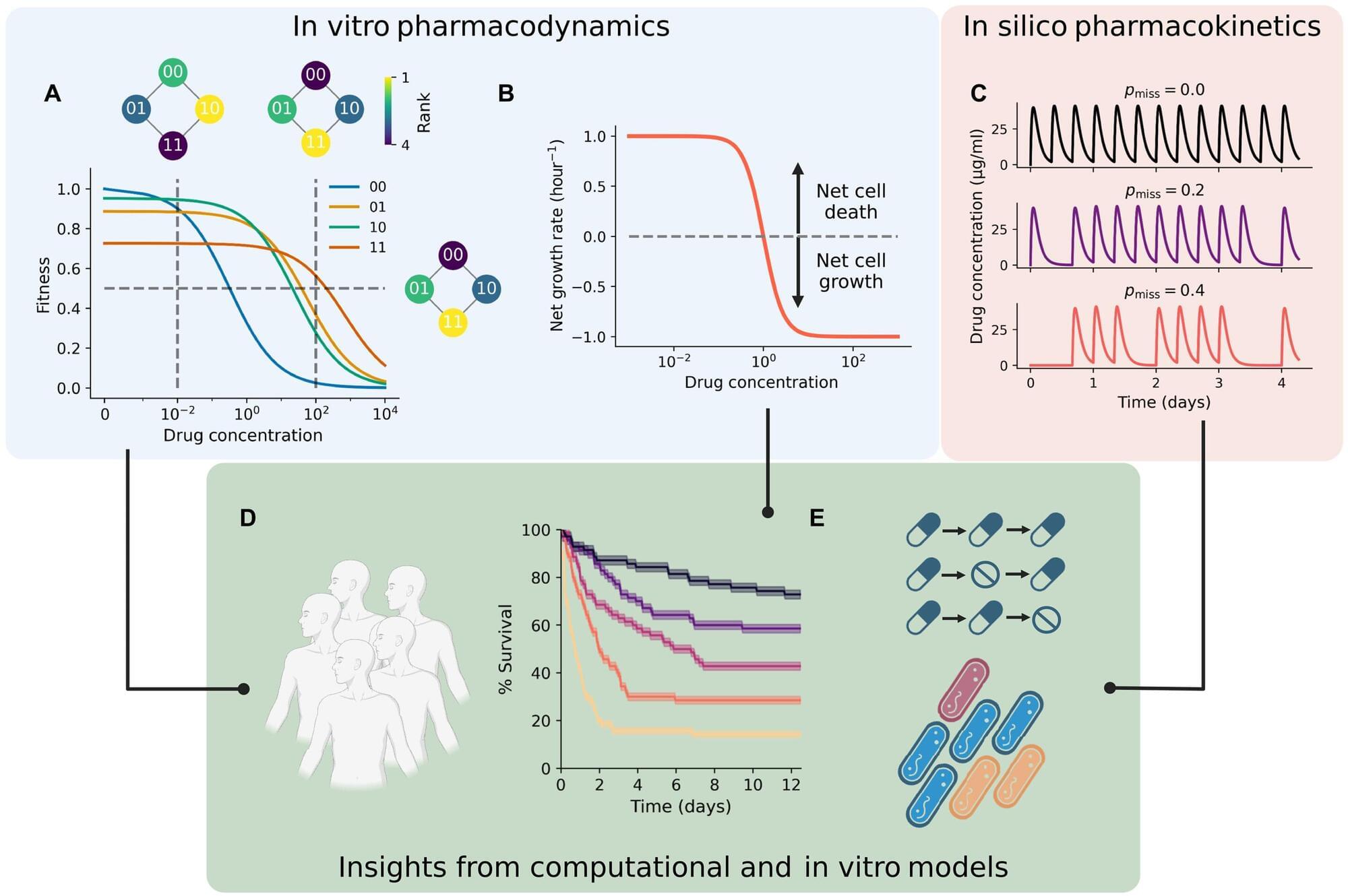Cleveland Clinic researchers are working to improve the way we use evolutionary modeling to understand drug resistance. The study, published in Science Advances, uses a new type of evolutionary model called a “fitness seascape” to incorporate a patient’s dosage schedule into models that predict whether an infection will develop antibiotic resistance, and has found that inconsistent timing and missing early doses can lead to treatment failure.
A team led by Jacob Scott, MD, DPhil., including study first author Eshan King, an MD/Ph. D. student at Case Western Reserve University School of Medicine, is refining models that determine recommended antibiotic doses by incorporating bacterial evolutionary dynamics.
“With the rise of ‘superbugs,’ or antibiotic-resistant bacterial infections, the world is reaching a crisis point,” says Dr. Scott, the study’s senior author. “We’ve already seen from MRSA what can happen if a bacterium becomes antibiotic-resistant. We need to address the problem before it impacts our ability to use antibiotics in more routine aspects of medical care, like surgery or childbirth.”
